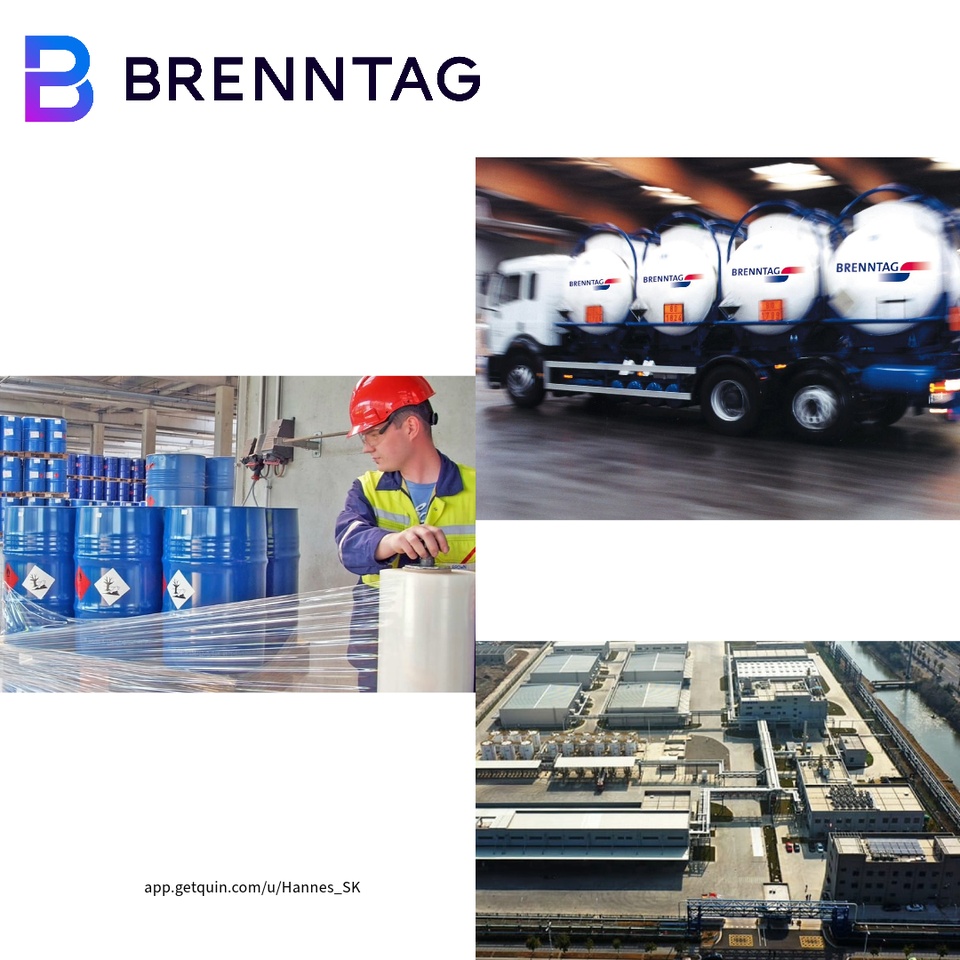Brenntag - a great company for difficult times
After commenting on the downward trend in the DAX in my article on BASF, I would now like to present another DAX-listed industrial group that is quite robust for difficult economic times, but could certainly also be worthwhile in the future.
Chemicals trading is booming in times of economic downturn. Large customers tend to order smaller containers due to inventory optimization, which is why the order intake of producers in relation to distributors has slumped rapidly in some cases.
One company from the chemicals trading sector is Brenntag $BNR (+0,14%) . In addition, there are mainly medium-sized companies in this sector.
But why are chemicals traders doing relatively well, while large-scale producers are experiencing a massive drop in orders?
The following points are particularly important in the industry's production planning:
- Profitability
- reliability
- quality
This means that in times of economic downturn, production is predominantly "on sight" until a recovery in the order situation can be forecast. Accordingly, fewer raw materials and the resulting goods are required. Nevertheless, a corresponding production process must be ensured at a reduced capacity for economic and climatic reasons (especially in winter due to the risk of frost). Storage capacities are usually reduced in order to stabilize the market price of the end product and thus avoid sponging the market and possibly operating unprofitably.
One can therefore certainly speak of risk reduction.
This in turn results in a preference for smaller containers of raw materials and products. This is where retailers/distributors come into play.
They buy their goods from large producers at standard industry prices and fill them themselves into smaller containers (canisters, IBCs, etc.) or configure them to new specifications. For most chemicals, this can be done by diluting them with water.
Expansion
Brenntag is probably the most rapidly expanding distributor in its field. In addition, there are double-digit, high sales growth rates in the "new" markets, above all the USA. With strategic acquisitions, Brenntag is not only securing its position in North America, but is also expanding strongly in Eastern Europe in particular, covering the value chain of retail and logistics with its core competencies. With this broad product range and first-class service, the company is one of the most reliable partners in the chemical industry and is therefore rightly on course for expansion.
Margins
With a net margin of ~4%, the company is of course far from being a cash cow. Nevertheless, it is interesting for a future investment perspective. The growth strategy that Brenntag is currently pursuing should be kept in mind. Due to the expansion, growth is to the detriment of the margin, as the acquisition of customers can only guarantee a long-term partnership through high discounts on new contracts. As the partnership continues, these contracts become more expensive. However, industrial customers tend to be less inclined to switch suppliers due to a price issue (with the exception of exorbitant savings, of course). Industrial customers tend to focus primarily on the reliability and quality of the product.
To this end, Brenntag branches regularly undergo certification and also invite external audits so that customers, partners and interested parties can form their own impression of the industrial partnership.
It is therefore almost certain that the management will focus more on business optimization and thus also on margins as growth slows down.
The marketability of dangerous goods trading
One must always be aware of the fact that the business model is predominantly or almost exclusively concerned with trading in hazardous substances of various classes. This can certainly open up optimistic prospects, as this business model operates internationally relatively independently of the given economic fundamentals. After all, there is no producer risk and therefore no raw material costs and associated risks. Procurement always takes place from the major producer.
However, the environmental aspect should be emphasized more clearly. Due to the higher logistical effort involved, the risk of accidents is higher than with a stationary production plant. Accidents can be reduced, but not avoided. Significant penalties imposed by external authorities and courts could cause profound damage to the business model and public perception.





